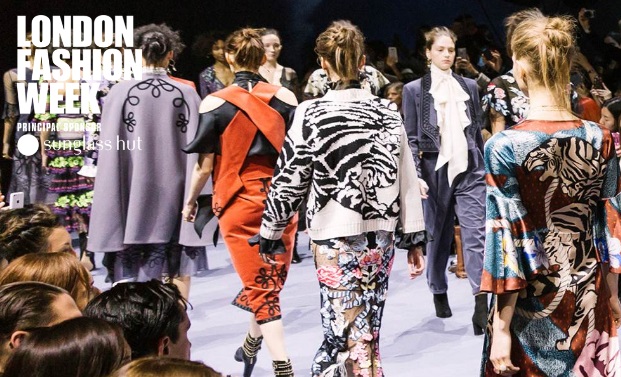Over a quarter (26%) of female shoppers are actually most likely to purchase based on a fashion trend they have seen on Facebook, according to new research.
The study, from Rakuten, also indicates that one in ten women now say that they are most influenced by the fashions of social media personalities across Snapchat, Instagram and blogs.
Key findings:
· Kate is considered to be the most influential fashionista in the UK, with 29% of the public vote
· A fifth of female shoppers take inspiration for their wardrobe from their Facebook feed
· 27% of female shoppers still get inspiration from TV programmes, showing the value of broadcast media alongside targeted digital advertising
In recent years, the FROW (Fashion Front Row) has increasingly been frequented by bloggers and vloggers as well as headliners such as Suki Waterhouse, Cara and Poppy Delevingne. However, Rakuten Marketing’s research shows that Kate Middleton is considered the most influential celebrity on fashion trends in the UK, with 29% of the vote. Kate is the celebrity most likely to drive female shoppers to a purchase showing that there is definitely a place for royalty on the FROW.
Amongst the 16-24 age group, both Rita Ora and Zoella are twice as influential on fashion as they are amongst other age groups. Prime Minister Theresa May came bottom of the list, despite reports in the media on her preference for labels including Amanda Wakeley, and her signature L.K Bennett leopard print shoes.
McQueen, Westwood… Zuckerberg?
Whilst LFW is all about the renowned designers on the catwalk, 26% of female shoppers admit that they are actually most likely to be led to a purchase because of a fashion trend they have seen on social media. Facebook is the most popular site for inspiration with a fifth of female shoppers looking there. This rises to a third amongst 25-34 year old women.
One in ten women now say that they are most influenced by the fashions of social media personalities across Snapchat, Instagram and blogs. Instagram influences the 16-24 year old age bracket the most, with 31% of women this age looking here for new outfits to buy. Snapchat is twice as influential amongst the 16-24 age bracket compared to the overall sample, showing the importance of these formats for retailers to connect with younger customers.
Magazines & TV still mean business
Recent LFW events have seen a growing appetite among top labels for big digital campaigns, with runways events being shown in real-time on Instagram and Periscope.
However, the findings show that it’s crucial for retailers to have a multichannel marketing strategy as the role of traditional fashion magazines is reaffirmed as the most influential medium for female shoppers; a third scrutinise the celebrity pages for shopping ideas. 23% of female shoppers are most likely to look for fashion inspiration from blogs and vlogs by fashion enthusiasts or brands though, showing the need for brands to devise strategies with new publisher formats to engage shoppers.
Product placement across broadcast media also remains an important consideration for brands. 27% of female shoppers get inspiration from TV programmes, although celebrities in film are the most influential category of celebrity, surpassing TV stars by 8%.
Nick Fletcher, director of multichannel at Rakuten Marketing commented: “Our findings illustrate the added value third party influencers can bring to customer relationships. Alongside celebrity icons like Kate Middleton, bloggers and vloggers have become go to personalities for fashion inspiration so there is huge opportunity for retail brands to grow their customer base through their audiences. It’s critical that during LFW retailers are thinking about how consumers shop for clothes the rest of the year; our data shows that the customer journey is led by social media inspiration so affiliate relationships with these leaders in fashion can instigate sales.”
Fletcher continues: “It’s important to take a multichannel approach though, our data shows the influence of both traditional and new digital media formats. For instance, TV advertising can be effective if paired with more targeted engagement through programmatic across other channels, particularly search and social. Whilst shoppers are getting inspiration from one advertising medium, brands will find that they engage with them on numerous channels before they convert to a purchase.”
Rakuten Marketing is the global leader in omni-channel marketing. Offering an integrated strategy that combines consumer centric insights with e-commerce expertise, Rakuten Marketing aims to inspire better marketing. Rakuten Marketing’s omni-channel services include Rakuten Affiliate Network (formerly Rakuten LinkShare), the number one ranked affiliate marketing service,; Rakuten Display (formerly MediaForge), enabling one-to-one marketing across devices through precise targeting, custom dynamic creative, and engagement measurement; Rakuten Attribution (formerly DC Storm), measurement and attribution solutions that allow marketers to uncover the true performance of their campaigns with an unbiased, transparent view into each media channel. Rakuten Marketing has recently acquired Manifest Commerce, an automated technology that predicts and tests retailer’s highest-performing products on social ads, for prospecting and retargeting.
Source: http://marketing.rakuten.co.uk/
